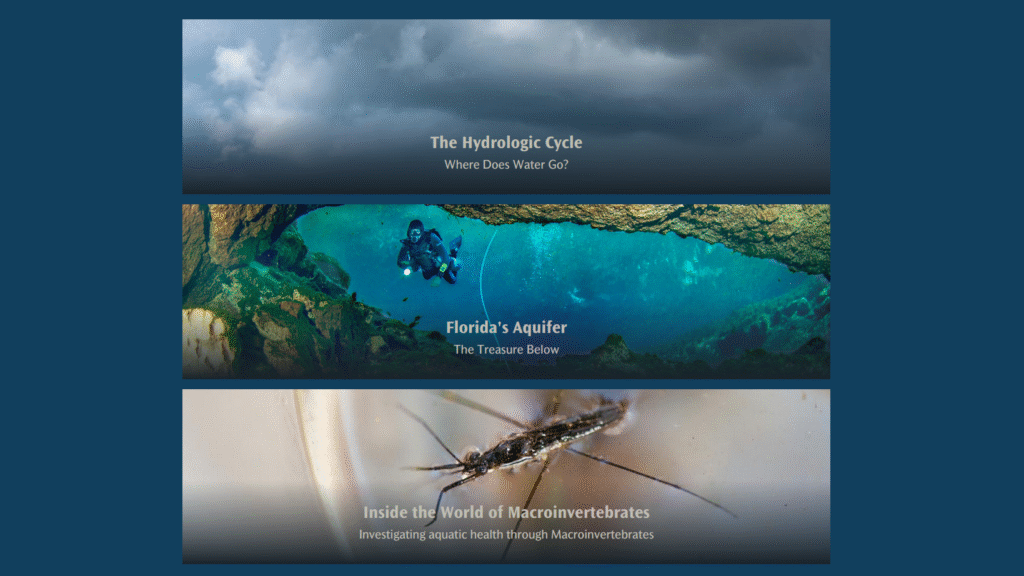Lesson plans
The St. Johns River Water Management District has collected or written the following kindergarten through 12th-grade lesson plans to assist educators in teaching various aspects of water resources. The lessons are correlated to the Florida Standards and may be adapted to suit your particular teaching environment.
Critters in the water and what they tell us
The creatures that live in stormwater ponds and natural waterways give scientists insight into water quality. This video provides an overview of those creatures.
1 minute, 28 seconds
Macroinvertebrates
Studying macroinvertebrates is one indicator used by scientists to determine water quality in stormwater ponds and natural waterways. Educators and others who work with students can use this hands-on exercise to expand learning outside the classroom by following the simple steps outlined in this video.
2 minutes, 59 seconds
Florida’s Aquifer: The Treasure Below
Explains how Florida’s aquifer system formed.
5 minutes, 31 seconds
Watersheds: Our neighborhoods and beyond
Video is an overview of pollutants that impact our waterways and how individuals can reduce their impacts. A presenter works with students using a hands-on model to illustrate concepts.
10 minute, 40 seconds
Water Pollution: The Dirty Details
Explains about the kinds of water pollution and how the District and others are working to reduce the amount of pollutants going into our waterways. Gives tips for individuals to reduce their harmful impacts on surface waters.
7 minutes, 21 seconds
Rough fish harvest at Lake George, Florida
This teaching tool for Florida educators describes the science behind harvesting gizzard shad to directly remove thousands of pounds of nutrient pollution from Lake George, which helps improve water quality and reduce the severity of algal blooms in the lower St. Johns River.
7 minutes, 21 seconds
Prescribed fire: A versatile land management tool
Fire has always been a part of nature in Florida, and most species depend on it for survival. District land managers conduct periodic “prescribed fires” as a safe way to apply a natural process to ensure ecosystem health to meet the needs of many plants and animals while also reducing the threat of wildfires.
2 minutes, 17 seconds


